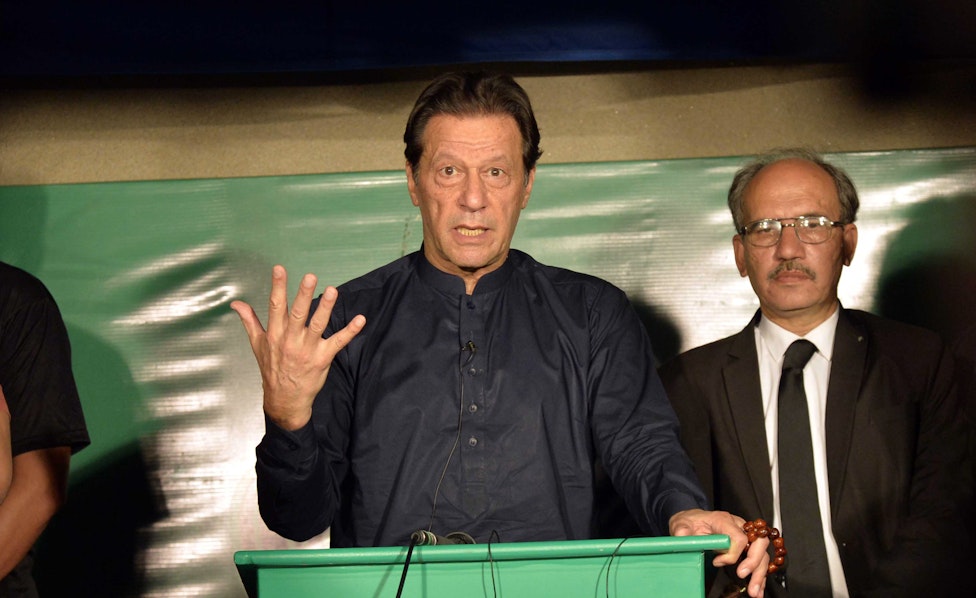 NEWS
NEWSFormer Pakistan Prime Minister Imran Khan was sentenced Wednesday (January 31) to 14 years in jail on a graft charge, a day after he was given a 10-year prison term in verdicts handed down just a week before national elections.
Khan and his wife were found guilty of graft in a case involving gifts he received while premier, after he was Tuesday (January 30) handed 10 years in a case related to leaking state secrets.
Pakistan goes to the polls next Thursday in a ballot already marred by allegations of rigging, with Khan barred from running and his Pakistan Tehreek-e-Insaf (PTI) party subject to a massive crackdown. "Another sad day in our judicial system history, which is being dismantled," a party spokesman told media.
It was not immediately clear if Khan's sentences were to run consecutively or concurrently following a trial held inside the jail where he has been detained for much of the time since his arrest in August.
But his lawyer, Salman Safdar, confirmed to AFP he had been sentenced alongside his wife, Bushra Bibi, who had been on remand throughout the trial. Intazar Hussain Panjutha, one of Khan's legal team, said Bibi had surrendered herself to authorities.
Bibi, a faith healer who met Khan when he approached her for spiritual guidance, rarely appears in public and only wearing a face-covering hijab when she does. The pair married in 2018, months before Khan was elected prime minister.
About 127 million Pakistanis are eligible to vote next Thursday, with Khan and his PTI at the centre of debate despite being squeezed out of the limelight. On Tuesday a bomb blast claimed by the Islamic State group near a PTI rally killed four people and wounded six others in the Balochistan provincial capital of Quetta.
PTI said three of its activists had been killed in the blast, just hours after Khan was sentenced.
Buried by court cases
Since being ousted in 2022, Khan has been buried by court cases he claims have been triggered to prevent his return to office after a campaign of defiance against Pakistan's military kingmakers. The 71-year-old had accused the powerful military -- with whom he ruled in partnership for much of his tenure -- of orchestrating his ouster in a US-backed conspiracy.
When Khan was first arrested in May last year, riots broke out across the country. But his street power was killed by a military crackdown that saw thousands of supporters detained -- 100 of whom are facing closed-door military trials -- and dozens of senior leaders forced underground.
"You have to take revenge for every injustice with your vote on February 8," Khan said in a statement posted on his X profile reacting to his 10-year sentence on Tuesday.
"Tell them that we are not sheep that can be driven with a stick."
As a result of the ongoing crackdown, PTI has moved most of its campaigning online, where it has been bogged down by state-imposed internet blackouts. The party founded by former cricket star Khan has also been stripped of its cricket bat election symbol -- in a nation where literacy lags, making icons vital for identifying candidates on ballot papers.
Nawaz Sharif -- head of one of the two dynastic parties that have historically helmed Pakistan -- has returned from self-imposed exile and seen his myriad convictions dissolve in the courts.
Analysts say it is a sign the three-time former prime minister is the favoured candidate of the military, which has directly ruled Pakistan for just under half its history.